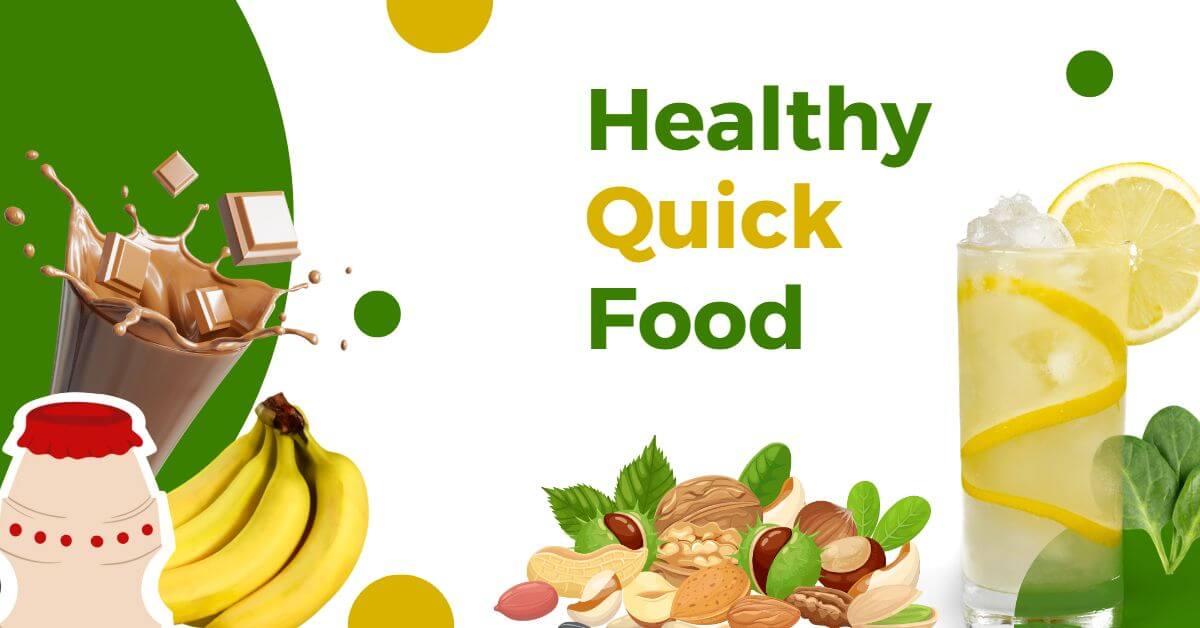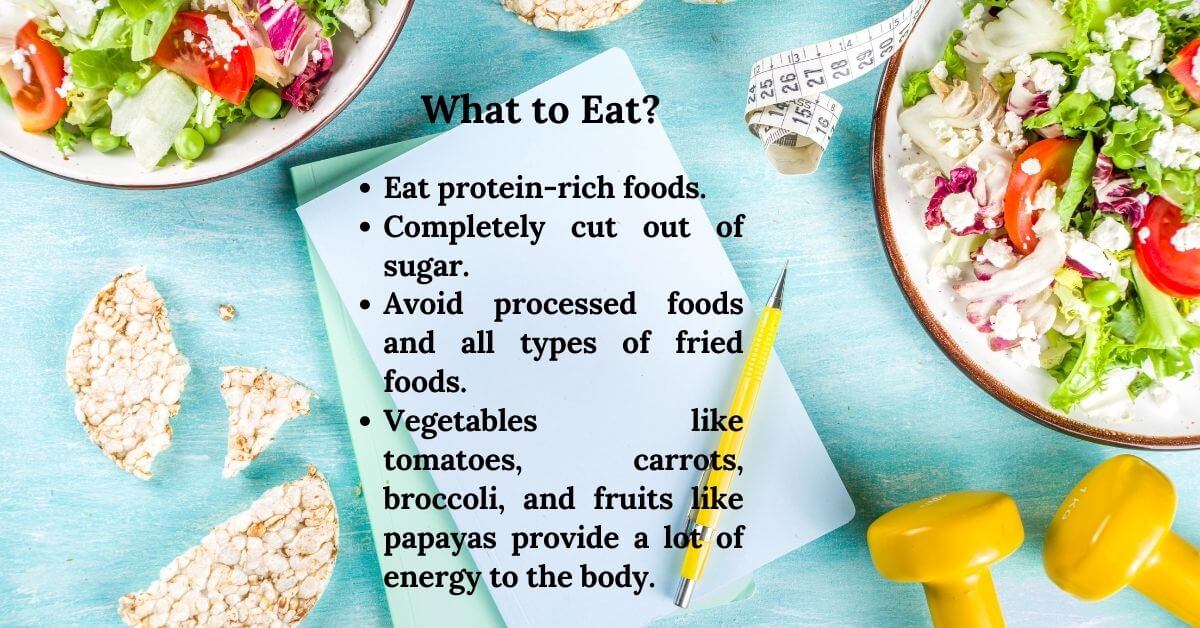In our busy routine sometimes, we forget to take care of our health. In this article, we will talk about some handy healthy quick food that we can easily manage to intake with our busy schedule and it balances our diet as well. That is Peanut, banana, yogurt, dark chocolate, and lemon water. It will recover our daily needs of vitamins, minerals, carbohydrates, healthy fat, proteins, etc.
Healthy Quick food
This healthy quick food that we can easily manage to intake with our busy schedule and this quick meals balanced your diet.
Peanut
Peanut is not a dry fruit; it is a staple but we can say affordable dry fruits. Peanut is very healthy and dry quick food so we can carry them easily. Nowadays there are different kinds of variants available in the market like peanut butter, peanut sweets, peanut namkeen, etc. We can make different kinds of dishes according to our taste bird.
Peanut has the benefits of:
- Helps in weight loss.
- Healthy fat, high-quality protein, very tasty, and high in nutrients and antioxidants.
- High in calories and easy to eat in large amounts.
- Low carbohydrate which is good for diabetic people is a good source of dietary fiber and lowers sugar levels.
- It helps to prevent heart disease.
- Source of many vitamins and minerals like biotin, folate, niacin, manganese, copper vitamin E, phosphorus, magnesium, etc.
Tips for uses:
- You can make several different kinds of sweet dishes like chikki, laddoo, barfi, etc. with organic jaggery which will enhance the nutrition of peanuts.
- With peanut butter, we can make sandwiches, rolls, smoothies, cakes, muffins, etc.
- There are so many variants available of peanut namkeens and we can also make them according to our taste.
Bananas
Bananas are the most popular fruit for every age. The most important thing is it is available maybe in every season. It is a mid-morning nutritious breakfast. Take it like snacks in our workplace. Smoothies are the best option which everyone likes.
Banana has the benefits of:
- Strong bone density.
- Excellent source of antioxidants.
- It is a rich source of potassium which helps lower the risk of stroke, prevents kidney stones,
- Helps in digestion and makes your tummy happy.
- Low in carbohydrates so helps in weight loss.
Tips for uses:
- Smoothies, we can make a large number of variants with different kinds of fruits, milk, and ice cream.
- Banana pancake is most popular with kids.
- We can also use bananas in muffins, cookies, sandwiches, etc.
Yogurt
In the market, there are two types of yogurt available. The first one is regular dairy yogurt which is made from milk and another option is Non-dairy yogurt which is made from coconut milk, cashew, almond, etc. It is made from live bacteria.
Yogurt has the benefits of:
- yogurt has the benefit of friendly probiotic bacteria.
- Improves Digestion
- Natural Immunity Booster:
- Reduces Risk of Cancer
- It’s good for heart health.
- It’s good for your gut.
- It reduces the risk of diabetes type 2
- It is good for born health.
- yogurt is a probiotic that is most important for our immune system it is also good for our digestive system it increases our gut health and brain health as well.
Tips for uses:
- The most important tip for consuming yogurt is always to use low-sugar yogurt and minimum flavor or if possible, always buy unflavored yogurt.
- There is a different way of consuming yogurt we can use for breakfast is
- Mix it with dry fruits nuts fruits like blueberry strawberry
- We can use it with a banana and yogurt smoothie.
Dark chocolate
Dark chocolate is most people’s favorite food and dry quick food. It is a very nutritious and good source of antioxidants. It has different kinds of vitamins and minerals. It is also low in sugar than milk chocolate.
Dark chocolate has the benefits of:
- It Is good for our gut and in turn, also helps introduce weight loss
- Prevention of cancer.
- It is a good antioxidant so it’s so many benefits for your skin as well as good for heart disease and eye disease.
- Helps in healthy blood flow and blood pressure.
- Dark chocolate has good cholesterol.
- Add chocolate has anti-inflammatory properties.
- It improves your brain function which helps to prevent such Neurology diseases as Alzheimer’s disease and Parkinson’s disease.
- It is a natural sunscreen That protects your skin from sun damage increasing skin density and hydration.
Lemon water
we can make lemon water in a different way it depends on your taste we can use lemon water can mix flavor with mint, ginger, cinnamon, Maple syrup, honey, etc.
Lemon water has the benefits of:
- Lemon water detoxifies your body helping burn fat and boost your metabolism.
- Good for cancer.
- It is also a good source of vitamin C it is good for drinking daily if you make her do lemons or two times a day lemon it is enough to keep your body hydrated and healthy.
- Lemon water is also good for teeth.
- Lemon water is a very good source of vitamin C and antioxidants which protects your skin cells.
- It helps in reducing weight gain it is also used in Constipation it keeps your digestive system healthy.
- Lemon water prevents kidney stones it has citric acid.
- It also fights against cancer cells.
Quick Food Benefits on Health
Quick and healthy food gives benefits for your overall health.
- Nutrient-Rich: Healthy foods are often rich in essential nutrients like vitamins, minerals, and antioxidants. These nutrients support various bodily functions and help maintain good health.
- Weight Management: Choosing healthier options can help you manage your weight. Healthy fats and high-fiber foods help keep you feeling full and content and lower your risk of overeating and being overweight as well.
- Energy Boost: Nutrient-dense foods provide a steady source of energy. Foods high in B vitamins and complex carbs can help you maintain your energy levels throughout the day.
- Better Digestion: Foods high in fiber, like fruits, vegetables, and whole grains, promote healthy digestion and can help prevent digestive issues such as constipation.
- Heart Health: A diet low in saturated fats and high in unsaturated fats (found in foods like nuts, seeds, and fatty fish) can contribute to better heart health by lowering cholesterol levels and reducing the risk of heart disease.
- Strong Immune System: A diet rich in vitamins and minerals supports a strong immune system.
- Improved Skin and Hair: Nutrient-rich foods can promote healthy skin and hair. Vitamins A, C, E, and biotin, found in foods like citrus fruits, nuts, and seeds, contribute to skin and hair health.
- Mood and Mental Health: Certain foods contain compounds that can positively impact mood and mental health. Omega-3 fatty acids found in fatty fish, for example, have been linked to improved mood and reduced risk of depression.
- Reduced Risk of Chronic Diseases: A diet rich in fruits, vegetables, whole grains, and lean proteins is associated with a lower risk of chronic diseases such as diabetes, hypertension, and certain cancers.
- Improved Longevity: Eating a balanced and nutritious diet is linked to a longer, healthier life. It can help you maintain your overall health and vitality as you age.
It’s crucial to remember that while quick, healthy food options might provide these advantages, general dietary patterns, and lifestyle choices can have a big impact on how you feel. For the purpose of obtaining and preserving excellent health, a comprehensive strategy that incorporates regular physical exercise and portion management is vital.
Summary
All the product that we have discussed is most important for our body’s health like diabetes, cancer, blood pressure, heart disease, Brain, skin, weight loss, digestive system, and many more.
We can easily manage this healthy quick food in our office in our routine work.
There are many variants of every product so choose to consume it according to your taste and start to keep your body healthy.





